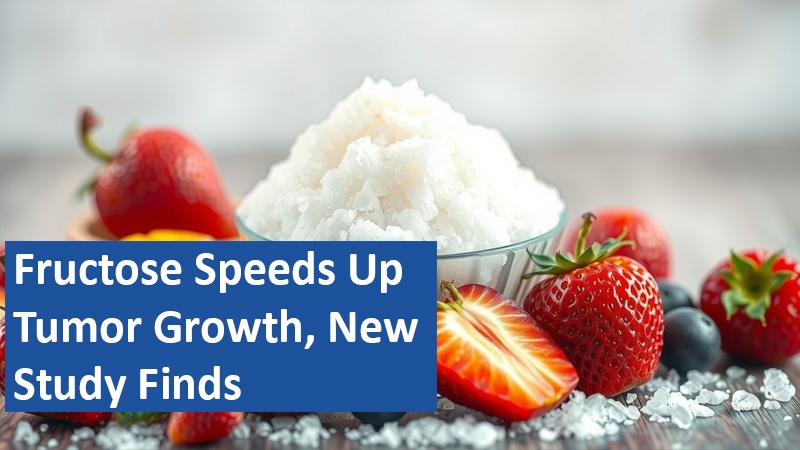A study from Washington University in St. Louis reveals that a diet high in fructose accelerates tumor growth. Although cancer cells cannot metabolize fructose directly for energy, byproducts from fructose metabolism in the liver provide building blocks that promote rapid tumor development.
By John Adams
Fructose and Cancer: A Hidden Connection

Fructose, a sugar commonly found in fruits and widely used in processed foods as high-fructose corn syrup, has long been considered healthier than glucose. However, its increased consumption—15 times higher in Western diets compared to the 1960s—raises concerns. Researchers have linked rising cancer rates among individuals under 50 to dietary changes, including the growing prevalence of fructose in everyday foods. To understand this relationship, scientists fed fructose-rich diets to zebrafish and mice with cancer. Their findings revealed a stark acceleration in tumor growth, with some cancers doubling their growth rate.
Indirect Impact on Tumor Growth
Contrary to expectations, cancer cells do not metabolize fructose directly. Experiments with human cancer cell cultures showed no significant growth when fed fructose alone. Instead, the study suggests that fructose metabolism in the liver produces molecules like lysophosphatidylcholine (LPCs), which cancer cells use as building material. These LPCs, generated through liver enzymes such as ketohexokinase (KHK) and aldolase B, are converted into phosphatidylcholines (PCs) by tumor cells. PCs are essential components of cell membranes, enabling rapid cancer cell proliferation.
Fructose as a Tumor Nutrient
The study highlights how fructose indirectly supports cancer by providing materials necessary for cell growth. This discovery raises questions about the role of diet in cancer progression and whether reducing fructose intake could “starve” tumors. Researchers suggest that patients with cancer might benefit from avoiding foods high in fructose, though clinical trials are needed to validate this approach.
Implications for Cancer Treatment
These findings shift the focus from direct nutrient uptake by tumors to the broader metabolic interactions within the human body. By understanding how healthy tissues process dietary components into tumor-supporting byproducts, scientists hope to develop more effective strategies for cancer treatment.
The study reveals that while cancer cells cannot metabolize fructose directly, its byproducts from liver metabolism significantly accelerate tumor growth. This finding suggests that reducing fructose intake could potentially slow cancer progression, though further clinical studies are necessary to confirm its effectiveness. It underscores the importance of understanding how dietary habits influence cancer development through complex metabolic processes.
Based on content from www.forschung-und-wissen.de and own research.